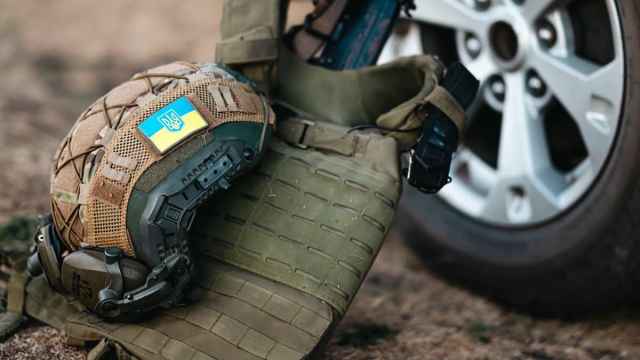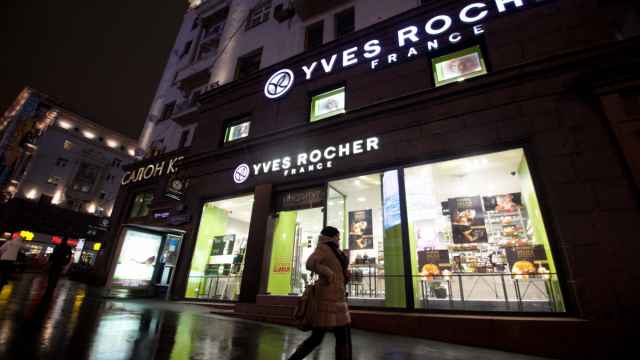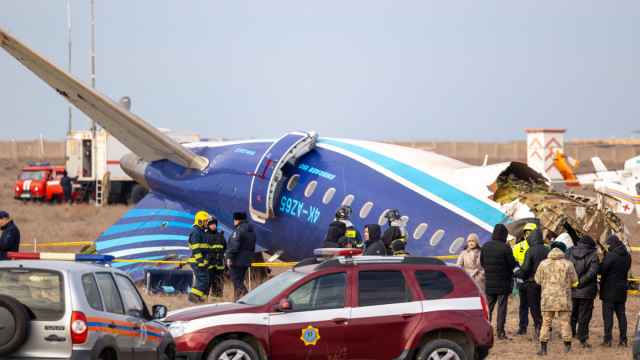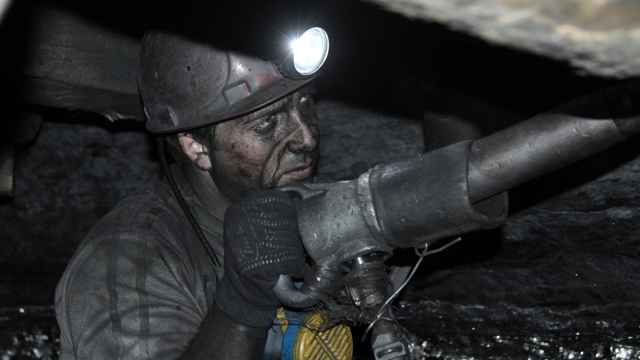Austrian prosecutors said Tuesday that Chechen President Ramzan Kadyrov was an obvious suspect in the brazen killing of a Chechen refugee in central Vienna but that they lacked evidence to connect him to the crime.
"Naturally it seems very likely that he ordered the killing. … But the current evidence does not allow us to assume that Kadyrov was personally responsible," prosecutor Leopold Bien told a court in Vienna, Austrian media reported.
Bien spoke at the opening of the trial against three men accused of taking part in the killing of Umar Israilov, who was gunned down in broad daylight in the Austrian capital in January 2009.
The case has made headlines because human rights activists and politicians say there is enough evidence to implicate Kadyrov in the killing, contrary to official Austrian statements.
Kadyrov again denied that he had anything to do with the killing. His spokesman Alvi Karimov said any suggestion to the contrary reflected an ongoing "information terror" against Chechnya and its leadership.
At the court hearing, Bien presented photographs showing one of the suspects, Otto Kaltenbrunner, embracing Kadyrov at a meeting in Chechnya.
Kaltenbrunner, a Chechen refugee who changed his name from Ramzan Edilov, is accused of organizing the killing, which was carried out by two hitmen and a driver.
Police arrested Kaltenbrunner and one of the suspected hitmen, Turpal-Ali Yeshurkayev, and the purported driver of the getaway car, identified as Suleiman Dadayev.
A fourth suspect, Lecha Bogatyryov, accused of having fired the deadly shots, is on the run.
Bien said Bogatyryov was now serving as a police commander in Chechnya — "possibly as a reward for the murder," he said.
Austrian police have said the killers left behind a trail of evidence, including video surveillance footage, gunpowder on their clothes and cell phone calls.
At Tuesday's hearing, all three suspects denied wrongdoing.
Kaltenbrunner said he would have never allowed the murder to have happened. "I am the first person in Europe who would have stood up against this," he said, Austrian Press Agency reported.
His lawyer Rudolf Mayer said the killing was the result of a criminal clash. Israilov had embezzled 300,000 euros ($404,000), and Yeshurkayev and Dadayev had been ordered to retrieve the money, he said, Vienna's Die Presse newspaper reported.
Peter Pilz, a Green Party deputy in the Austrian parliament, said after attending the trial that the prosecutors' vagueness on the killers' motives showed that the Austrian government was not ready to confront Russia.
"The prosecution presented impressive evidence and argued plausibly, but it failed to address the motive convincingly. I believe this reflects political considerations," he said by telephone from Vienna.
Pilz said there was "a huge gap" on the defendants' bench without Kadyrov and promised to step up public and political pressure to bring him to Austria.
"Austria must signal that it enacts the rule of law. We need an indictment and international arrest warrant for Ramzan Kadyrov," he said.
In a bizarre twist, Kaltenbrunner's lawyer Mayer said he would ask for Kadyrov to be called as a witness so that the Chechen leader could confirm his innocence. "Maybe he will come," he was quoted as saying by Die Presse.
Pilz also complained that Austrian authorities had failed to crack down on a Vienna-based 30-member gang that used "all means, including attacks, blackmail and kidnapping" to force refugees to return to Chechnya.
Court documents, excerpts of which Pilz published on its web site, say some of the suspects' tapped phone calls were with Shaa Turlayev, a former Chechen rebel commander who has served as an adviser to Kadyrov since 2009.
Israilov's lawyer and rights activists say the single motive for the killing was his detailed knowledge of systematic and grave human rights violations in Chechnya, including instances of torture.
A former rebel fighter, Israilov was captured in 2003. He later claimed to have been tortured and forced to join Kadyrov's presidential guard.
"Israilov was the chief witness and could have talked openly about this," Pilz said.
Seven months before being shot, Israilov helped file a complaint against Kadyrov at the European Court of Human Rights in Strasbourg, the Berlin-based European Center for Constitutional and Human Rights said on its web site.
Kadyrov's spokesman Karimov angrily denied all accusations. "These are all fabrications by some public activists," he told The Moscow Times.
Kadyrov was in the United Arab Emirates last weekend, holding talks with officials, including Deputy Prime Minister and Dubai Crown Prince Sheikh Mansour Bin Zayed.
Dubai saw another killing linked to Kadyrov with the death of Sulim Yamadayev in March 2009. Yamadayev was a powerful Chechen commander and bitter opponent of Kadyrov, whom his family accused of masterminding the killing of him and his brother Ruslan.
But in August, Yamadayev's surviving brother Isa made peace with Kadyrov.
Last week, Isa Yamadayev reportedly agreed to judicial leniency toward two men, an Iranian and a Tajik, convicted for his brother's murder in Dubai.
Karimov denied any suggestion that the Yamadayev case was connected with Kadyrov's visit to the United Arab Emirates.
"This has absolutely nothing to do with the other. The sole purpose of the visit was to show our friendly relations with the Emirates," he said.
Dubai has accused State Duma Deputy Adam Delimkhanov, a relative of Kadyrov, of ordering the killing and issued an international arrest warrant for him. Karimov said Delimkhanov was not in Kadyrov's delegation.
Kadyrov also visited the Abu Dhabi Grand Prix, where he mixed with Spanish King Juan Carlos and Prince Albert of Monaco, his web site said.
A Message from The Moscow Times:
Dear readers,
We are facing unprecedented challenges. Russia's Prosecutor General's Office has designated The Moscow Times as an "undesirable" organization, criminalizing our work and putting our staff at risk of prosecution. This follows our earlier unjust labeling as a "foreign agent."
These actions are direct attempts to silence independent journalism in Russia. The authorities claim our work "discredits the decisions of the Russian leadership." We see things differently: we strive to provide accurate, unbiased reporting on Russia.
We, the journalists of The Moscow Times, refuse to be silenced. But to continue our work, we need your help.
Your support, no matter how small, makes a world of difference. If you can, please support us monthly starting from just $2. It's quick to set up, and every contribution makes a significant impact.
By supporting The Moscow Times, you're defending open, independent journalism in the face of repression. Thank you for standing with us.
Remind me later.






